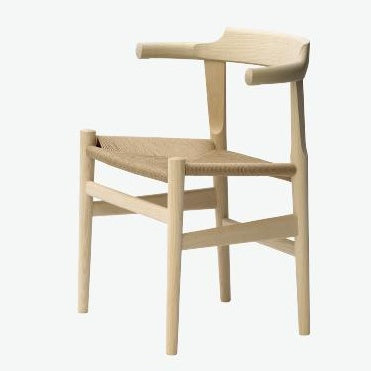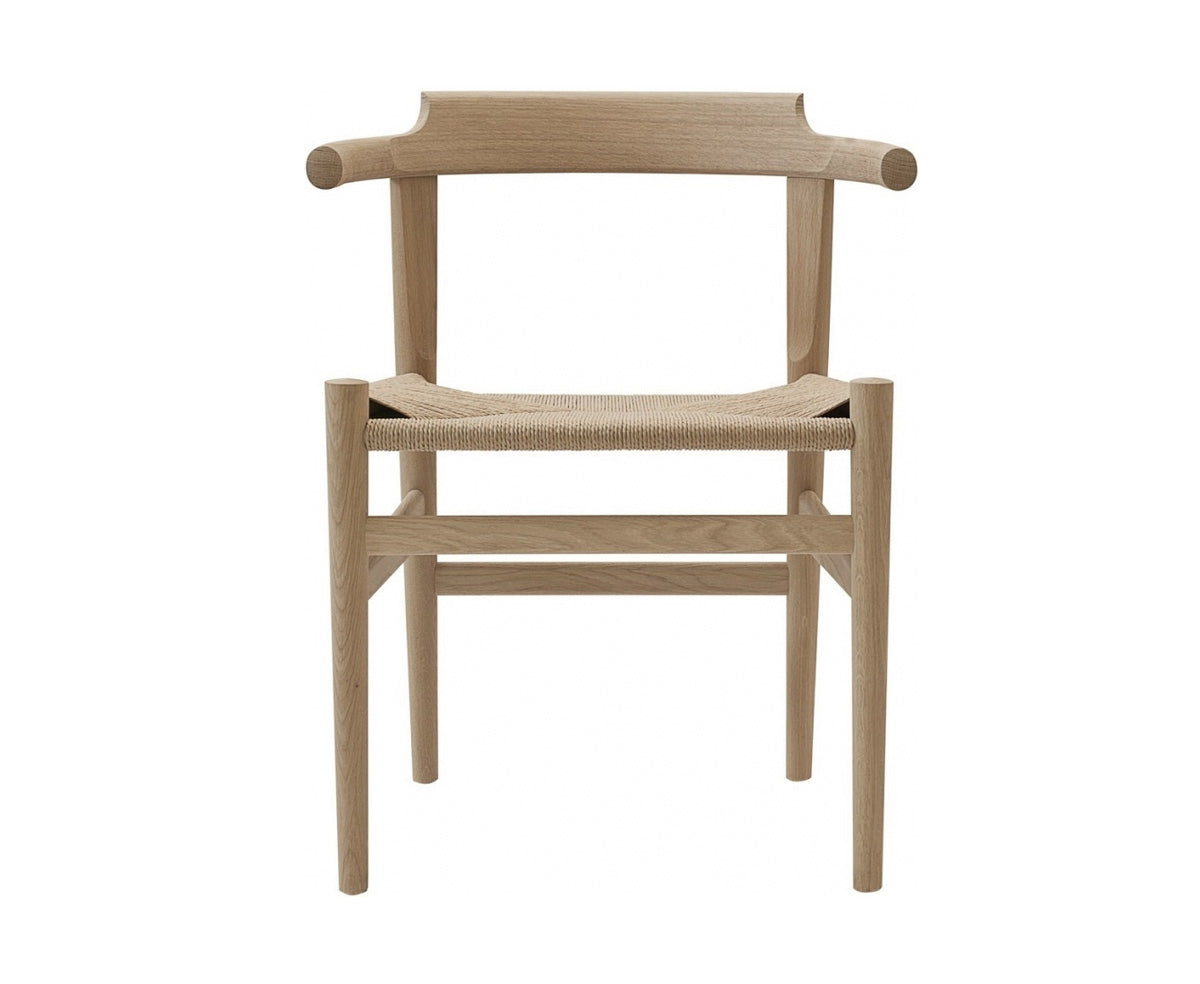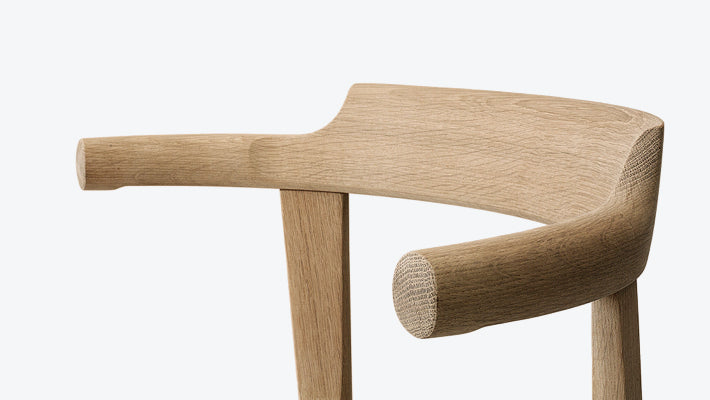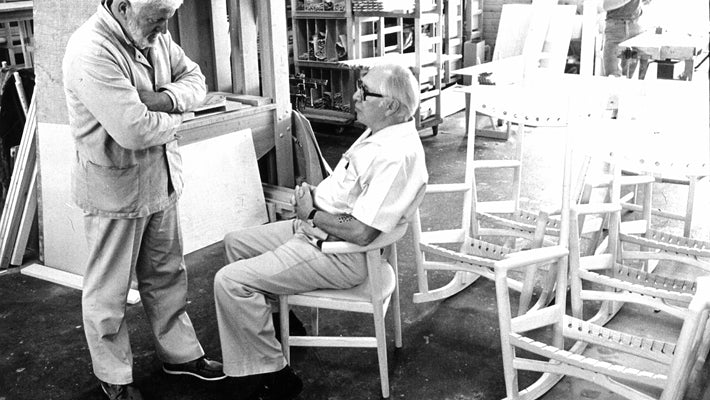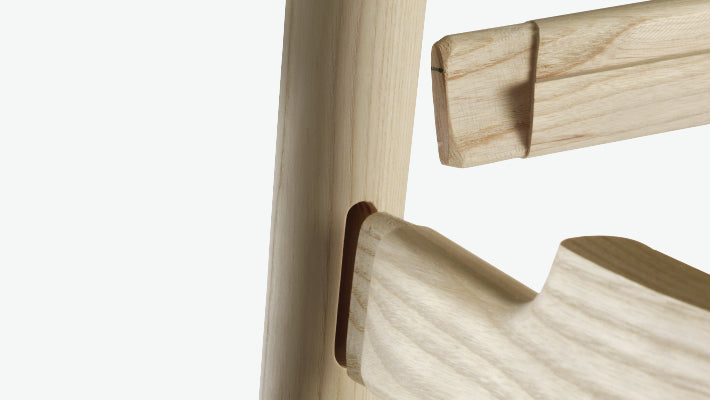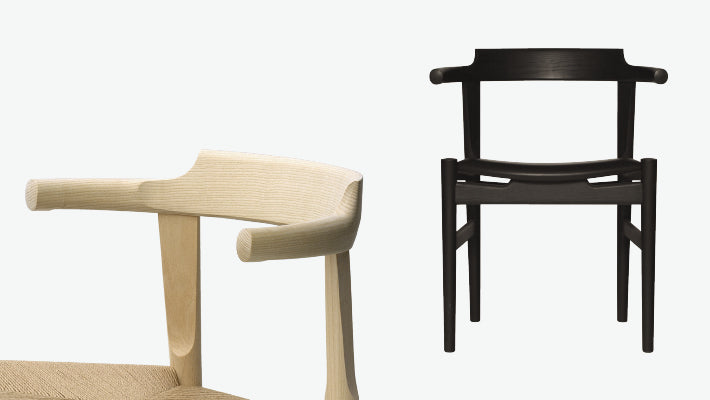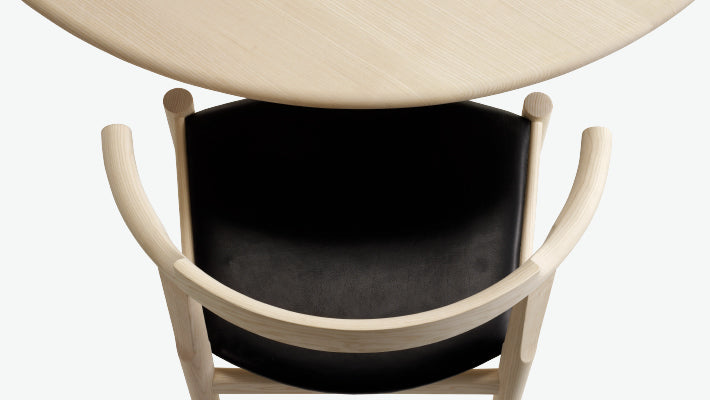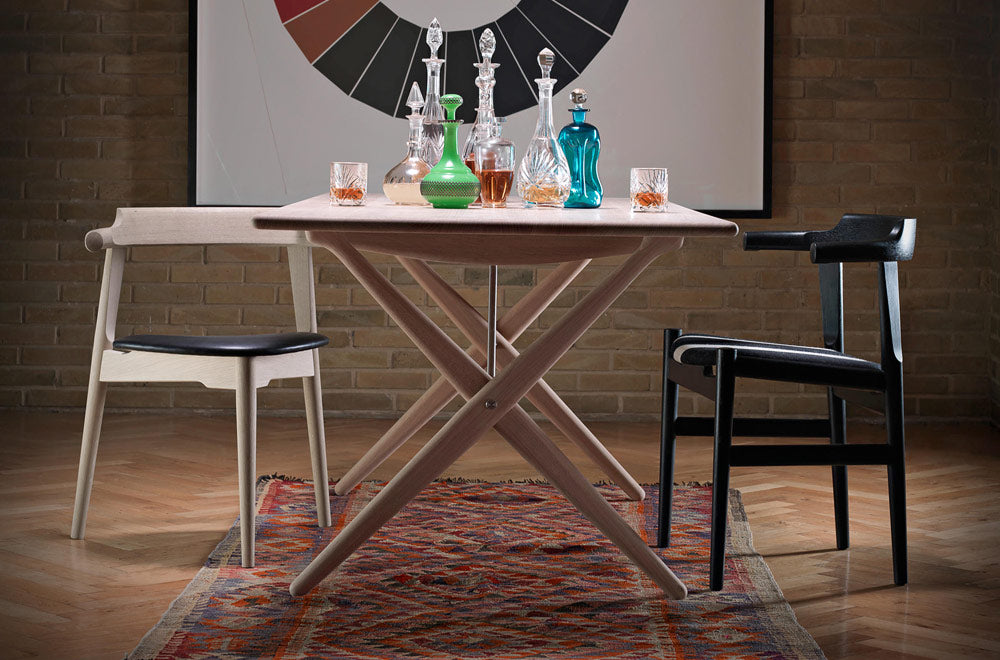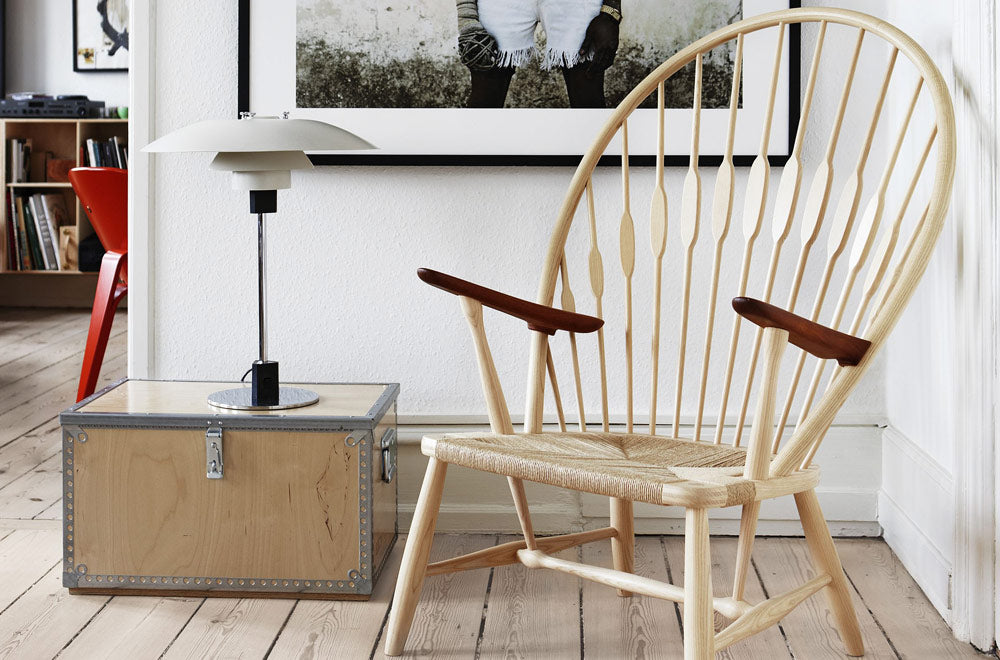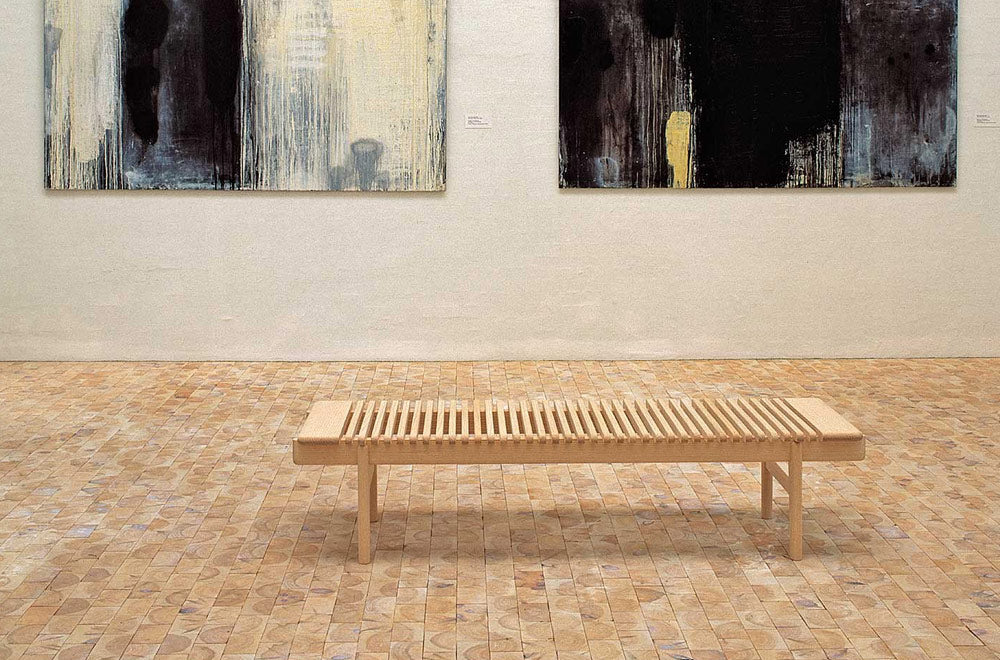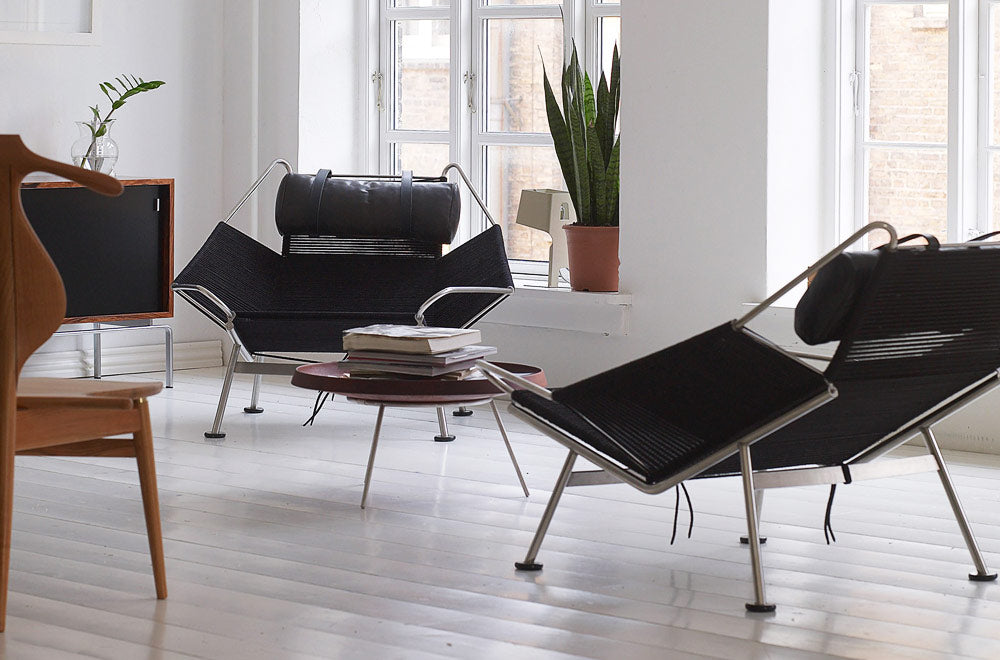What is left to do after a long glorious carrier with a long line of design masterpieces acknowledged by the whole world, and a number of significant awards already achieved?
For Hans J. Wegner the answer was obvious: in 1987, 73 years old, he designed the pp58/pp68 as his final basic chair; a genuinely comfortable, practical, strong and durable chair. Benefitting from a life's experience with furniture design, he was determined to let this particular design be guided by all he had learnt from his previous works.
Comprising solid wood joined with tenons proved by testing each joint to withstand one ton of pulling strength, the chair is designed to be comfortable in alternate seating positions, making it a delightful experience to be seated for hours.
Son of a shoe-maker in southern Jutland, Hans Wegner, finished his formal training as a cabinetmaker with master cabinetmaker Stahlberg in 1930 before starting at Teknologisk Institut in Copenhagen. He soon moved to the School of Arts and Crafts in the Danish capital where he became architect in 1938, and started teaching in 1946.
In 1940 he joined Arne Jacobsen and Erik Møller in Arhus, to design the furniture for the new Arhus city hall. He started to work with 'minister' cabinetmaker Johannes Hansen in 1940 and showed his first furniture in the famous Hansen store on Bredgade 65 in 1941. Johannes Hansen was more than twice as old as the 26 year old Wegner but the unique collaboration between the two became the undisputed backbone of Danish furniture design and the main reason for it's world wide recognition in the fifties and sixties. The Copenhagen Museum of Art and Industry acquired the first Wegner chair in 1942.
In 1943 he started his own design office and 1 year later designed the first of a long series of 'chinese' chairs inspired by portraits of Danish merchants sitting in Ming chairs for Fritz Hansen. In 1950 Wegner designed the “Wishbone Chair” produced by Carl Hansen & Søn in Odense which became the most successful of all Wegner chairs. Most well known for it’s use by Kennedy and Nixon in their famous CBS TV debate of 1960.








